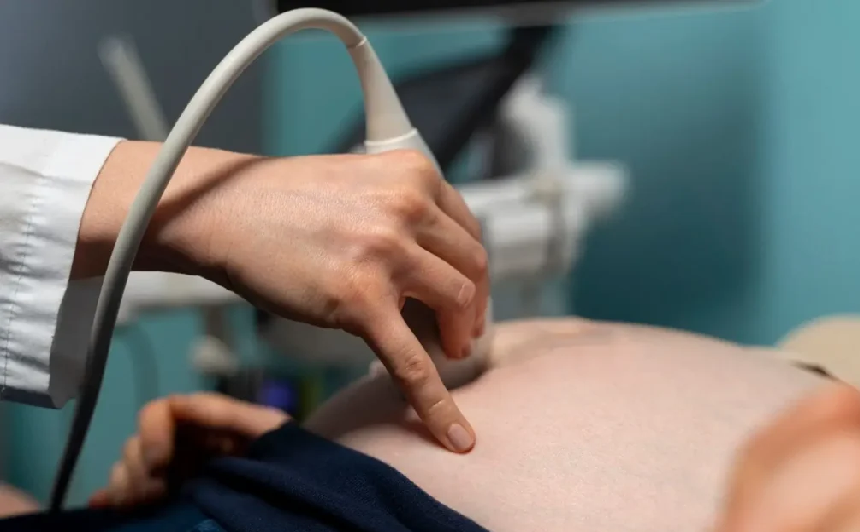Obesity is defined as a body mass index (BMI) over 30. The United States is ranked 10th among countries with the highest rates of obesity, with approximately 91 million people experiencing both physical and mental side effects. Weight loss is crucial for improving overall health. While diet and exercise are generally considered safe, they may not always be effective. For some, surgery may work, but it too comes with potential complications. This is where non-surgical procedures like Endoscopic Sleeve Gastroplasty (ESG) can be a safe and effective alternative for achieving weight loss goals. To help you better understand ESG, we answer some commonly asked questions about the procedure in this blog.
1. What is Endoscopic Sleeve Gastroplasty?
Endoscopic Sleeve Gastroplasty (ESG) is a non-surgical weight loss option that can help you achieve your desired weight with minimal complications. During the procedure, the stomach is sutured to create a sleeve. It restricts the amount of food consumed and reduces the production of the hunger hormone (ghrelin) thereby promoting weight loss. For those seeking Endoscopic Sleeve Gastroplasty in Dallas and Fort Worth, it is important to choose a trusted bariatric surgeon within the community who can help ensure a smooth and successful recovery.
2. How is Endoscopic Sleeve Gastroplasty performed?
During the Endoscopic Sleeve Gastroplasty (ESG) procedure, patients are sedated and surgeons use an endoscope attaching a suturing device to place the suture inside the stomach and reduce the stomach size to resemble a banana. This resizing significantly reduces the food intake capacity and promotes a feeling of fullness. The procedure eliminates the need for incisions and minimizes scarring. The ESG procedure typically takes around an hour. Patients are usually able to return home the same day and most can return to work within 24 to 48 hours after the procedure. Unlike other non-surgical weight loss procedures, ESG does not involve any implants that require removal at a later date, and it is completely irreversible. If you experience any discomfort or unbearable pain, you can consult your bariatric surgeon to have the sutures removed.
3. What are the risks involved in Endoscopic Sleeve Gastroplasty?
ESG is a safe and effective weight loss procedure, with a risk of less than one percent. While rare, there is a risk of injury to the spleen, colon, or pancreas during the procedure. If you experience any bleeding or pain in the area, it is important to consult with your surgeon as soon as possible to ensure prompt treatment. Like any other medical procedure, the ESG procedure does include some side effects. Patients may experience common symptoms such as nausea, vomiting, and abdominal pain that may resolve on their own over time or can be managed with medications. Your healthcare provider can offer guidance on managing pain and symptoms with appropriate medication.
4. Are there any other benefits of ESG apart from weight loss?
Obesity is often accompanied by serious health-related issues, such as stroke, type 2 diabetes, gastroesophageal reflux disease, an increased risk of heart failure, and sleep apnea. ESG procedures can help patients not only achieve weight loss but also improve these health conditions. In some cases, weight loss may even resolve these health issues altogether.
5. What are post-operative instructions?
Immediately after the ESG procedure, patients are not allowed to eat or drink anything immediately. Then, after a few hours, they are put on a liquid diet for up to two weeks. Once the liquid diet phase is complete, patients move on to a semi-solid food diet that continues for the next four weeks. After completing the semi-solid diet phase, patients can gradually resume their regular diet. Patients should work closely with their dietician and healthcare provider to navigate each phase effectively. Regular checkups and visits to the dietician are crucial for tracking progress.
6. Is Endoscopic Sleeve Gastroplasty right for me?
The ESG procedure is typically considered suitable for patients with a BMI of at least 30 or above. People with morbid obesity who are not eligible for other bariatric surgeries or have failed to achieve their desired weight loss with diet and exercise may also be potential candidates for the procedure. However, if you have a BMI of less than 30, this procedure may not be suitable for you. These are general guidelines that may vary from patient to patient. Thereby, it is advisable to consult an experienced bariatric surgeon to determine your eligibility. Experienced bariatric surgeons in Dallas and Fort Worth leverage their expertise and advanced technology to evaluate patients and determine the suitability of the Endoscopic Sleeve Gastroplasty procedure for their unique needs.
Conclusion
Most patients who undergo the ESG procedure experience significant weight loss of almost 15-20 percent of their total body weight over time. This low-risk procedure has shown promising results. If you reside in Dallas or Fort Worth and are considering the ESG procedure, it is recommended to consult with a trusted DFW bariatric surgeon who has a good track record of performing this procedure.
You may also like
-
Healthcare Outsourcing to the Philippines: Achieving Revenue Cycle Excellence Through Strategic Partnership
-
The Quiet Standards That Define a High-Performing Endovascular Device Supplier in Modern Healthcare
-
Role of Free Zones in Supporting Pharma Export Businesses in UAE
-
How to Find a Reliable Dietitian Online in India
-
Top Reasons to Source Medicines from Indian Pharma Exporters

